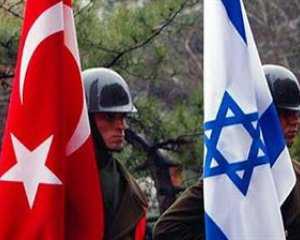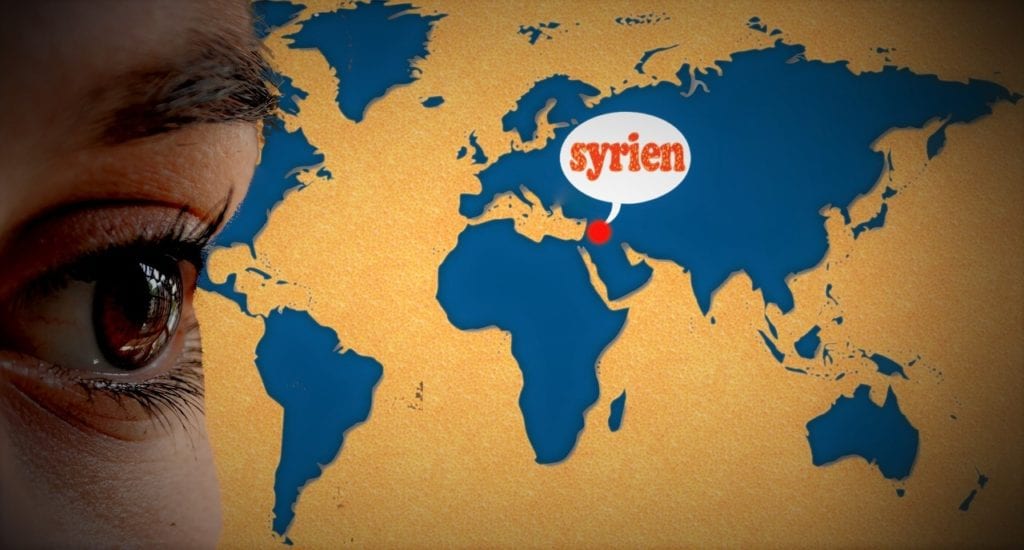Highlights
Turkey and Israel’s strategic alliance in the Middle East, fostered by their shared aim to limit Iran and prevent Arab states from aligning against them, will preserve their relationship through most external shocks.
Intensifying U.S. efforts to find regional allies it can rely on to contain Iran helps keep the two countries together.
Turkey’s defense of Palestinian statehood will always be a caustic wedge between the two: While it provides Turkey with important credibility in the Muslim world, it conflicts with Israel’s defense strategy.
Israel and Turkey appear to be testing the waters in preparation for resuming diplomatic relations. Officials from the two countries are thought to have met in the United Arab Emirates last month to discuss improving their diplomatic ties, which have been on pause since May. Other signs also point to a rapprochement: Turkey recently sent an economic attache to Israel, and Israel recently opened an internal job listing for an ambassador to Turkey. The two countries — sometime allies, sometime enemies — are again being pushed toward reconciliation as they move to counter Iran, cope with U.S. demands and defend their positions in the Middle East.
The Big Picture
Among the countries that the United States depends upon in the Middle East, Turkey and Israel stand out as cornerstones. Though they vacillate between friendship and hostility with one another, their ties rest atop a foundation of mutually beneficial trade, which survives even the most contentious times. Since hitting a low in 2010, their relations have been slowly on the mend. In their regional balancing act, Turkey and Israel always find that strategically they have more in common than not, but they will never see the need to entirely bury the hatchet.
See Israel’s Survival StrategySee Turkey’s Resurgence
The Search for Common Ground
Many strategic factors bind Turkey and Israel. They are two of the key non-Arab powers in the region and critical to its balance of power, which includes Persian Iran and Arab powers such as Saudi Arabia. They also have two of the strongest militaries in the Middle East. Turkey maintains the most powerful navy, and Israel the strongest air force. Each sees the other as too powerful to have as an enemy.
Ultimately, for Israel to protect itself in an unfriendly neighborhood, it must maintain at least a working relationship with Turkey. The alternative means contending with a big regional power while living next door to hostile Arab nations. Also, Turkey is the larger, more influential and more strategically crucial power due in large part to its location between the Mediterranean and Black seas and its status as a counterbalance to Russia, Iran and other regional heavyweights. This same strategic value came into play during the Cold War when the United States joined with Turkey and Israel to offset Soviet penetration of the Arab world.
Over the past two decades, Israel has had to adjust to Turkey’s way of building regional relationships; that method included picking fights with Israel — particularly over the treatment of the Palestinians — to gain traction with the Arab public. And for Turkey, Israel’s relationship with certain Kurdish factions — some of which it has heavily armed in the past — hits close to home and hampers its goal of weakening a potential Kurdish state. Keeping Israel close could help prevent it from arming the Kurds again.
Despite their differences, some of their regional goals overlap, especially when it comes to containing Iran’s influence. This objective plays out most clearly in the Syrian conflict, where Turkey and Israel want to direct Damascus away from Tehran and toward Ankara. While Israel is concerned primarily about the stability of the corners of Syria that affect its border, the Iranian presense there unsettles it. Much like Russia, Turkey can influence the Iranian presence but not control it. Israel also knows that Turkey, more than any other power active in Syria, is critical to ensuring that rebel groups there remain distinct from extremists.
In Lebanon, both have sought to curb Hezbollah’s influence, though they have used different means. Israel fights Hezbollah from time to time, keeping its military expansion in check. Turkey has chosen to take a nuanced and more gradual approach by supporting political and security forces opposed to Iran, counteracting Hezbollah and other proxies of Tehran.
The Economic Ties That Bind
Improved trade is perhaps the most deeply shared goal, because even in times of diplomatic rupture, import-export commerce has continued apace. Israel imports about $3 billion worth of raw materials and manufactured goods, such as cement, steel and tomatoes, from Turkey, whose current economic fragility highlights the importance of their trade relationship. For Israel, the imports help ensure that its manufacturing companies have a steady supply of materials.
Israeli arms sales to Turkey have also played a significant role in their relationship. While Turkey’s weapons industry has matured considerably over the past decade, the arms trade remains a promising area of cooperation. The energy sector, as well, could eventually become another area for collaboration. The two have been competing for natural gas exploration in the Eastern Mediterranean even as they had discussed over the past couple of years the possibility of building a pipeline between them. But the deal between Noble Energy and Israel’s Delek Drilling and the Egyptian East Gas Co. signed in late September to deliver natural gas from the Tamar and Leviathan fields in Israel to Egypt, compounded with the difficulty of building a pipeline across contested Cypriot territory, puts to rest any Israel-Turkey pipeline dreams in the near term.
The Most Recent Split
The May 2018 breakdown in ties between Israel and Turkey was just one of many periodic ruptures in their carefully balanced relationship. In December 2017, the United States decided to move its embassy in Israel from Tel Aviv to Jerusalem, aggravating the most contentious issue between Turkey and Israel: the Palestinian conflict. In May, Turkish President Recep Tayyip Erdogan accused Israel of genocide and expelled Israeli Ambassador Eitan Naeh after dozens of Palestinians were killed in unrest in Gaza driven in part by the embassy move. Caustic rhetoric from Turkey about Israel’s actions against Palestinians has been a familiar refrain under Erdogan. Turkey is seeking to be a champion of the Palestinian cause because it raises Ankara’s stature and leadership influence in the Muslim world. In his role as a patriarch of political Islam, the president is building his strongman image at home and solidifying his domestic legitimacy.
Israel is focused primarily on its security, and denying Palestinian statehood is a means of ensuring that security as well as stability. Turkey will continue to be a bit unpredictable on how far it is willing to go to ensure Palestinian rights. And Israel can withstand all manner of tough rhetoric from the Turkish government; it is used to it. But any new, outright meddling by the Turkish government in the restive Palestinian territories will be seriously troublesome. Israel is already concerned about the Turkish funding of civic and Islamic associations in east Jerusalem. That support is meant to bolster Turkey’s soft power there in its competition with the Arab states of Qatar, Saudi Arabia and Egypt.
The Role of the United States
That the U.S. embassy decision could spur the most recent Turkish-Israeli split underlines the influence the United States has on their contentious relationship. The United States had previously played a key part in bringing them together. In 2013, President Barack Obama pressured Israeli Prime Minister Benjamin Netanyahu to apologize for the deaths of Turkish activists killed when Israel intercepted the “Gaza Freedom Flotilla” in 2010 and agree to compensate their families.
Now, the United States needs the cooperation of both and a working relationship with both, as during the Cold War, to counterbalance Iran and reduce its own burden in the region. And the pressure this time, heightened by its economic problems, is on Turkey. Despite the low tide in U.S.-Turkish relations, the United States will continue to encourage Turkey to work with Israel. At the same time, the United States and Israel are in an unusually close period in their relations, which could embolden Israel in its regional and domestic policies, knowing that America has its back. Israel has exploited this greater U.S. pressure on Turkey when dealing with Ankara and has included its own pressure on the United States to not sell the advanced F-35 jet to Ankara.
Finally, Turkey must consider the quiet Israel-Saudi Arabia rapprochement. Their cooperation, encouraged by Washington and driven by the mutual desire to contain and combat Iran, could undercut Ankara’s goal to increase its influence across northern Syria and northern Iraq. This situation naturally leaves Turkey wanting to work more closely with Israel, so it can mitigate any Saudi moves that might threaten Turkish security imperatives, such as the possibility of arming certain Kurdish groups that fight against Iran. And an improved Turkish relationship with Israel could also help alleviate some of the U.S. pressure as well.
The Road Ahead
Though most signs point to an eventual reconciliation, Turkish actions could hinder progress. Turkey is still looking for ways beyond rhetoric to reinsert itself into the Palestinian issue. Ankara’s proposal for a Gaza seaport, which would facilitate Turkish aid reaching the area, could make some headway. And Ankara will forge ahead with building up ties in east Jerusalem, hoping that Israel would prefer to have it involved there in lieu of other powers, namely Iran. But Turkey likely would only provide funding with Israel’s approval. Otherwise, the resumption of further diplomatic ties could be restricted.
But for now, the ties between Turkey and Israel will remain pragmatic, limited and businesslike, subject to the influence of events in the region. Rapprochement could open economic opportunities for Israeli companies looking to invest in and with an economically weak Turkey. The two countries can be expected to continue discussions on the future of Syria and on ways to isolate Iranian influence there. Those two issues — trade and Iran — remain at the center of their on-again, off-again relationship.








